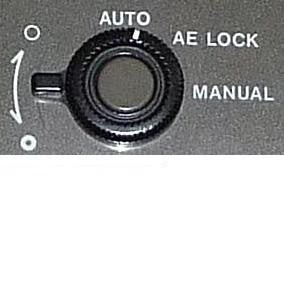
#3 Correct Exposure:
Having the correct exposure is one of the most critical aspects of getting the best-looking super8 pictures. There are books written on this subject where you can learn the nuances of lighting and exposure reading. The fundamental issue for super8 filmmakers today is that too many filmmakers are relying on their aging super8 cameras internal exposure system to make this critical setting. Some of these systems were not even that good when they where new, let alone 30 to 40 years down the road. Photography is after all, painting with light. To get your best results, you have to learn about light, how it relates to different film stocks, and how to choose the best exposure setting. My super8 images improved dramatically when I bought an inexpensive light meter (About $75.00) started taking some readings and doing some experimentation. I found that even the factory settings prescribed by the manufacture of both the film and cameras were not always optimum to make the best-looking Super8 pictures. So many factors affect your exposure. Did you know that your best exposure would be different based on if you are in wide or telephoto on your zoom? For your camera’s internal system to work, it has to be able to recognize the notch system in the super8 cartridge and be calibrated for it to work well. The ASA notches were designed to cover a wide range of ASA original films from 40 to 640 ASA measure in 2/3 stop increments. Some Super8 cameras can only recognize a single setting where others can read all six notches. None of this means much if the system has not been calibrated in 15 years. Once you own a light meter it is possible the do some comparisons if only to understand how your system is working. I use my cameras internal system all the time but I always have my light meter to check and compare settings. (c) Pro8mm ™, Phil Vigeant 2009
You might be interested to know that at Pro8mm , one of the things we do when we rebuild cameras such as the Canon 1014 XLS and Canon 814 to become modern filming tools is that we calibrate the exposure system. We notch the cartridges of the film we load to correspond with the closest ASA’s the camera system can accommodate . Below is an excerpt from our Max 8 (Canon) 1014 XLS manual, which is available on our website at www.pro8mm.com.
a. Advanced Exposure Calibration for Modern Super 8
The Advanced Exposure Calibration System in the Max8 1014 provides accurate film exposures for all modern film stocks that range from 50-500 ASA. Most super 8 cameras were designed and calibrated to make their best pictures using Kodachrome film. With the discontinuance of Kodachrome 40, it is time to establish new standards and calibrate cameras to the modern film stocks now widely used. In our test of eight Canon 1014’s we purchased used, the average internal exposure was off by an average of 2 Stops. The new Pro8mm notch system is designed to provide accurate film exposures over a range of five ASA designations. Calibrated in 2/3 F stop increments, this system can tell a properly calibrated camera the best way to expose all Super 8 film stocks. Super 8 cameras that can be calibrated to register this range of film will produce superior image to those that can not.
b. Pro8mm Advanced Cartridge Notching for Super 8
The advanced super 8 cartridge notching is designed to provide accurate film exposures with modern super 8 film that ranges from 50 to 500 ASA. (c) Pro8mm 2009 www.pro8mm.com
The post 8 Tips For Shooting Modern Super 8 #3 Exposure appeared first on Pro8mm.
